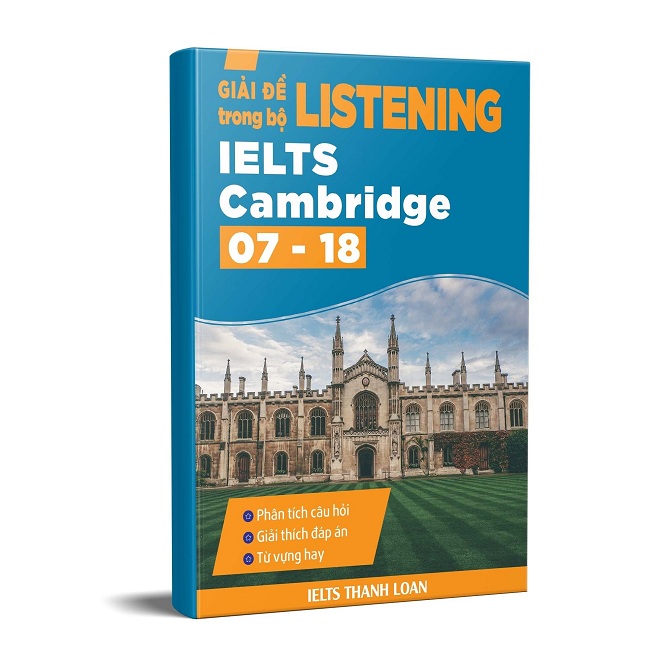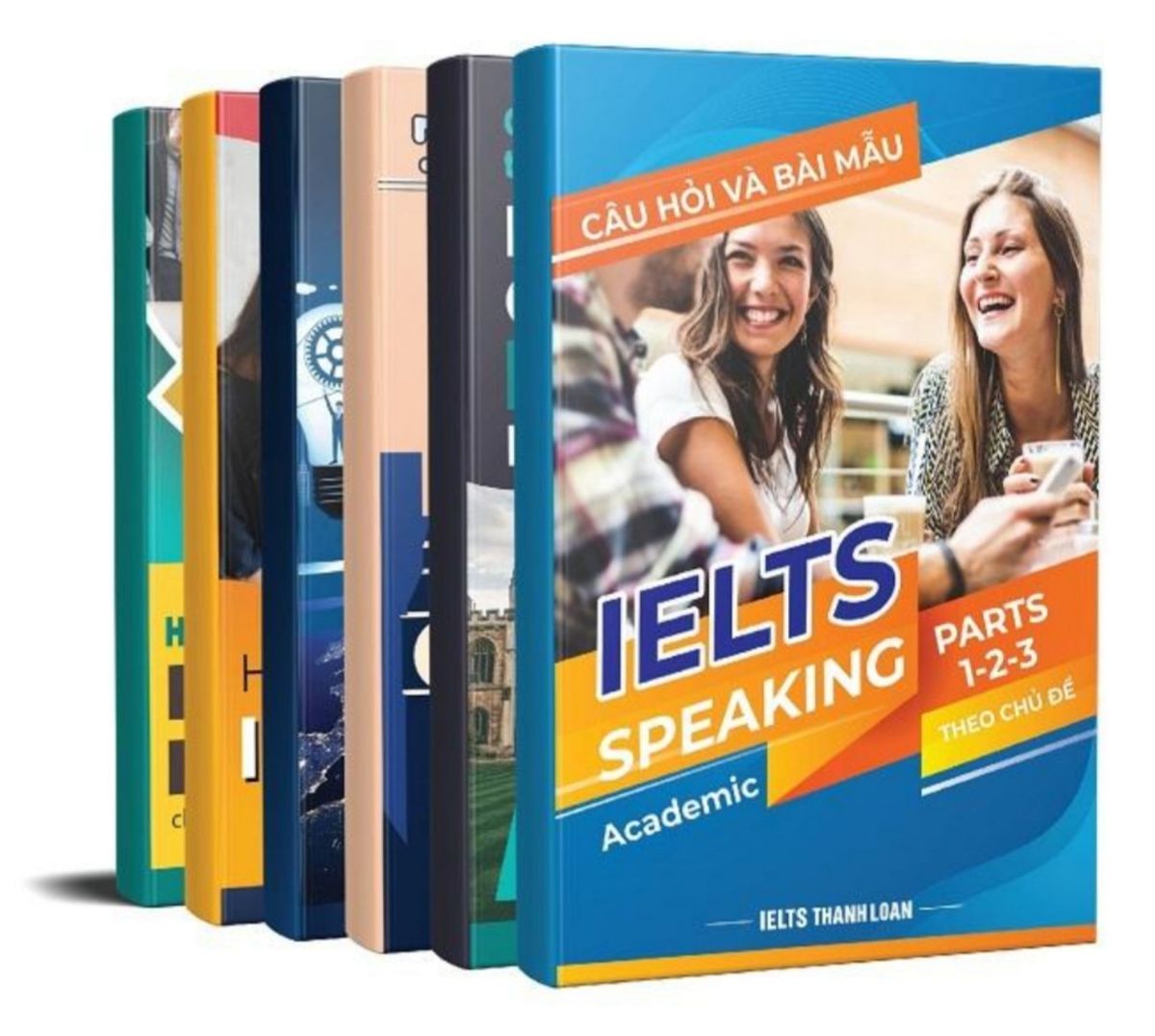Section 1: Employment Agency: Possible jobs
A – Phân tích câu hỏi
Questions 1-10
Complete the notes below. Write ONE WORD AND/ OR A NUMBER for each answer.
|
Employmentagency: Possible jobs(Trung tâm việc làm: Các công việc có khả năng) First job Administrative assistant in a company that produces (1) ………… (North London) Responsibilities
Requirements
Experience
Công việc đầu tiên Trợ lý hành chính trong một công ty sản xuất (1) ………… (Bắc Luân Đôn) > Chỗ trống cần điền 1 noun đếm được số nhiều/ không đếm được Trách nhiệm
Yêu cầu
Kinh nghiệm
Second job Warehouse assistant in South London Responsibilities
Requirements
Need experience of
(10) ………… service Công việc thứ hai Trợ lý kho ở Nam London Trách nhiệm
Yêu cầu
Cần kinh nghiệm của
(10) ………… dịch vụ > Chỗ trống cần điền 1 adj/ noun bổ nghĩa cho từ “service” |
B – Giải thích đáp án
Sally: Good morning. Thanks for coming in to see us here at the agency, Joe. I’m one of the agency representatives, and my name’s Sally Baker.
Xin chào. Cảm ơn vì đã đến gặp chúng tôi tại cơ quan, Joe. Tôi là một trong những đại diện của công ty và tên tôi là Sally Baker.
Joe: Hi Sally. I think we spoke on the phone, didn’t we?
Chào Sally. Tôi nghĩ chúng ta đã nói chuyện qua điện thoại, phải không?
Sally: That’s right, we did. So thank you for sending in your CV. We’ve had quite a carefullook at it and I think we have two jobs that might be suitable for you.
Đúng vậy, chúng ta đã nói chuyện rồi. Cảm ơn bạn đã gửi CV. Chúng tôi đã xem xét khá kỹ lưỡng và tôi nghĩ chúng tôi có hai công việc có thể phù hợp với bạn
Joe: ОК.
Ok.
Sally: The first one is in a company based in North London. They’re looking for an administrative assistant.
Cái đầu tiên là ở một công ty có trụ sở tại Bắc London. Họ đang tìm một trợ lý hành chính.
Joe: OK. What sort of company is it?
Ok. Công ty làm về lĩnh vực gì ạ?
Sally: They’re called Home Solutions and they design and make furniture (Q1).
Họ được gọi là Giải pháp gia đình và họ thiết kế và sản xuất đồ nội thất.
Joe: Oh, I don’t know much about that, but it sounds interesting.
Ồ, tôi không biết nhiều về nó, nhưng nghe có vẻ thú vị.
Sally: Yes, well as I said, they want someone in their office, and looking at your past experience it does look as if you fit quite a few of the requirements. So on your CV it appears you’ve done some data entry?
Đúng thế, như tôi đã nói, họ muốn một người nào đó trong văn phòng của họ, và nhìn vào kinh nghiệm trước đây của bạn thì có vẻ như bạn phù hợp với một số yêu cầu. Theo CV của bạn thì có vẻ như bạn đã thực hiện một số nhập dữ liệu?
Joe: Yes
Đúng ạ.
Sally: So that’s one skill they want. Then they expect the person they appoint to attend meetings(Q2). and take notes there …
Vì vậy, đó là một kỹ năng mà họ muốn. Sau đó, họ mong đợi người mà họ chỉ định tham gia các cuộc họp và ghi chép ở đó …
Joe: OK. I’ve done that before, yes.
Ok. Tôi đã làm công việc này trước đó.
Sally: And you’d need to be able to cope with general admin.
Và bạn cần phải có khả năng đối phó với quản trị viên chung.
Joe: Filing, and keeping records and so on? That should be OK. And in my last job I also had to manage the diary (Q3).
Nộp hồ sơ và lưu giữ hồ sơ, v.v.? Điều đó sẽ ổn. Và trong công việc cuối cùng của tôi, tôi cũng phải quản lý các cuộc họp.
Sally: Excellent. That’s something they want here too. I’d suggest you add it to your CV – I don’t think you mentioned that, did you?
Tốt. Đó là điều họ cũng muốn ở đây. Tôi khuyên bạn nên thêm nó vào CV của bạn – Tôi không nghĩ rằng bạn đã đề cập đến điều đó, phải không?
Joe: No
Dạ không.
Sally: So as far as the requirements go, they want good computer skills, of course, and they particularly mention spreadsheets.
Tất nhiên, theo các yêu cầu, họ muốn có kỹ năng máy tính tốt, và họ đặc biệt đề cập đến bảng tính.
Joe: That should be fine.
Điều đó không thành vấn đề ạ.
Sally: And interpersonal skills – which would be something they’d check with your references.
Và kỹ năng giao tiếp giữa các cá nhân – đó sẽ là thứ mà họ sẽ kiểm tra với tài liệu tham khảo của bạn.
Joe: I think that should be OK, yes.
Tôi nghĩ điều đó cũng được thôi ạ.
Sally: Then they mention that they want someone who is careful and takes care with details(Q4) – just looking at your CV, I’d say you’re probably alright there.
Sau đó, họ đề cập rằng họ muốn một người cẩn thận và nhất là các chi tiết – chỉ cần nhìn vào CV của bạn, tôi sẽ nói rằng bạn phù hợp với tiêu chí đó.
Joe: I think so, yes. Do they want any special experience?
Tôi cũng nghĩ thế. Họ có yêu cầu kinh nghiệm gì đặc biệt không?
Sally: I think they wanted some experience of teleconferencing.
Tôi nghĩ họ muốn có một số kinh nghiệm về hội nghị trực tuyến.
Joe: I’ve got three years’ experience of that.
Tôi đã có 3 năm kinh nghiệm về nó.
Sally: Let’s see, yes, good. In fact they’re only asking for at least one year (Q5), so that’s great. So is that something that might interest you?
Hãy xem, vâng, thế thì tốt. Trên thực tế, họ chỉ yêu cầu ít nhất một năm, vì vậy điều đó thật tuyệt. Vậy đó có phải là điều mà bạn có thể quan tâm?
Joe: It is, yes. The only thing is, you said they were in North London so it would be quite a long commute for me.
Đúng vậy. Chỉ có điều là, bạn nói rằng họ đang ở Bắc Luân Đôn nên sẽ là quãng đường sẽ khá xa với tôi.
Sally: ОК.
Ok.
Sally: So the second position might suit you better as far as the location goes; that’s for a warehouse assistant and that’s in South London.
Vì vậy, vị trí thứ hai có thể phù hợp với bạn hơn khi nói về vị trí; đó là cho một trợ lý kho và đó là ở Nam London.
Joe: Yes, that would be a lot closer.
Vâng, nó gần hơn nhiều ạ.
Sally: And you’ve worked in a warehouse before, haven’t you?
Và bạn đã làm việc trong một nhà kho trước đây, phải không?
Joe: Yes.
Đúng ạ.
Sally: So as far as the responsibilities for this position go, they want someone who can manage the stock, obviously, and also deliveries (Q6).
Nói về trách nhiệm của vị trí này, họ muốn một người có thể quản lý kho hàng, và cả những người giao hàng.
Joe: That should be OK. You’ve got to keep track ofstuff, but I’ve always been quite good with numbers.
Điều đó thì được. Bạn phải theo dõi mọi thứ, nhưng tôi luôn khá giỏi với những con số.
Sally: Good, that’s their first requirement. And they want someone who’s computer literate, which we know you are.
Tốt, đó là yêu cầu đầu tiên của họ. Và họ muốn một người thành thạo máy tính, chúng tôi biết bạn làm được.
Joe: Sure.
Dạ vâng.
Sally: Then they mention organisational skills. They want someone who’s well organised.
Sau đó, họ đề cập đến kỹ năng tổ chức. Họ muốn một người có tổ chức tốt.
Joe: Yes, I think I am.
Tôi nghĩ tôi có thể.
Sally: And tidy(Q7)?
Và gọn gàng?
Joe: Yes, they go together really, don’t they?
Vâng, chúng thường đi cùng nhau mà không phải sao ạ?
Sally: Sure. Then the usual stuff, they want someone who can communicate well both orally and in writing.
Chắc chắn rồi. Sau đó, những thứ thông thường, họ muốn một người có thể giao tiếp tốt cả bằng lời và bằng văn bản.
Joe: OK. And for the last warehouse job I had, one of the things I enjoyed most was being part of a team(Q8). I found that was really essential for the job.
Được. Và đối với công việc kho cuối cùng mà tôi có, một trong những điều tôi thích nhất là được trở thành thành viên của một đội. Tôi thấy điều đó thực sự cần thiết cho công việc.
Sally: Excellent. Yes, they do mention that they want someone who’s used to that, yes. Now when you were working in a warehouse last time, what sorts of items were you dealing with?
Tốt. Họ đề cập rằng họ muốn một người đã quen với điều đó, vâng. Công việc mà bạn làm trong một nhà kho lần trước, bạn đang xử lý những loại mặt hàng nào?
Joe: It was mostly bathroom and kitchen equipment, sinks and stoves and fridges.
Nó chủ yếu là thiết bị phòng tắm và nhà bếp, bồn rửa và bếp nấu và tủ lạnh.
Sally: So you’re OK moving heavy (Q9) things?
Bạn có thể di chuyển được những vật nặng chứ?
Joe: Sure. I’m quite strong, and I’ve had the training.
Được ạ. Tôi rất khỏe đấy.
Sally: Good. Now as far as experience goes, they mention they want someone with a licence, and that you have experience of driving in London – so you can cope with the traffic and so on.
Tốt. Theo kinh nghiệm, họ nói rằng họ muốn một người có bằng lái và bạn có kinh nghiệm lái xe ở London – để bạn có thể đối phó với giao thông, v.v.
Joe: Yes, no problem.
Không có vấn đề gì ạ.
Sally: And you’ve got experience of warehouse work … and the final thing they mention is customer (Q10) service. I think looking at your CV you’re OK there.
Và bạn đã có kinh nghiệm về quản lý kho hàng … và điều cuối cùng họ đề cập là dịch vụ khách hàng. Tôi nghĩ rằng nhìn vào CV của bạn, thì tôi thấy ổn.
Joe: Right. So what about pay? Can you tell me a bit more about that, please …
Vâng, thế còn lương thì sao ạ? Bạn có thể nói qua cho tôi về điều đấy không ạ …
C – Từ vựng
- commute(noun):
Nghĩa: the journey that a person makes when they commute to work
Ví dụ: I have only a short commute to work. - keep track of somebody/something (adjective):
Nghĩa: to have/not have information about what is happening or where somebody/something is
Ví dụ: Bank statements help you keep track of where your money is going. - computer-literate (adjective):
Nghĩa: able to use computers well
Ví dụ: She is highly computer-literate, and good at explaining the use of the system to others.
Bạn đang chuẩn bị cho kì thi IELTS?
Hãy tham khảo khóa học IELTS của cô Thanh Loan
Với 10 năm kinh nghiệm, cô Thanh Loan tự tin mang đến khóa học chất lượng nhất, phương pháp giảng dạy cô đọng dễ hiểu, giáo trình tự biên soạn đầy đủ cho lộ trình từ cơ bản đến luyện đề chuyên sâu. Đặc biệt, học viên luôn được quan tâm sát sao nhất, nhiệt tình, hỗ trợ học viên không giới hạn, thúc đẩy kỷ luật học tập tốt để đạt mục tiêu.

Section 2: Street play scheme
Questions 11 – 16
Choose the correct letter, A, B or C.
Street Play Scheme
11 When did the Street Play Scheme first take place?
- A two years ago
- B three years ago
- C six years ago
12 How often is Beechwood Road closed to traffic now?
- A once a week
- B on Saturdays and Sundays
- C once a month
13 Who is responsible for closing the road?
- A a council official
- B the police
- C local wardens
14 Residents who want to use their cars
- A have to park in another street.
- B must drive very slowly
- C need permission from a warden.
15 Alice says that Street Play Schemes are most needed in
- A wealthy areas
- B quiet suburban areas.
- C areas with heavy traffic.
16 What has been the reaction of residents who are not parents?
- A Many of them were unhappy at first.
- B They like seeing children play in the street.
- C They are surprised by the lack of noise.
Questions 17 and 18
Choose TWO letters, A-E.
Which TWO benefits for children does Alice think are the most important?
- A increased physical activity
- B increased sense of independence
- C opportunity to learn new games
- D opportunity to be part of a community
- E opportunity to make new friends
Questions 19 and 20
Choose TWO letters, A-E.
Which TWO results of the King Street experiment surprised Alice?
- A more shoppers
- B improved safety
- C less air pollution
- D more relaxed atmosphere
- E less noise pollution
Gợi ý sách liên quan
Giải đề Listening trong 12 cuốn IELTS Cambridge từ 07 – 18 (Academic)
Bạn hãy đặt mua Giải đề Listening trong bộ IELTS Cambridge để xem full nhé. IELTS Thanh Loan đã phân tích câu hỏi & giải thích đáp án chi tiết bộ IELTS Cambridge này, giúp quá trình luyện đề Listening của bạn dễ dàng hơn và đạt hiệu quả cao nhất.

Section 3
A – Phân tích câu hỏi
Questions 21-26
Complete the notes below. Write ONE WORD ONLY for each answer.
- What Hazel should analyse about items in newspapers:
- What (21) ……….. the item is on
- The (22) ……….. of the item, including the headline
- Any (23) ……….. accompanying the item
- The (24) ……….. of the item e.g. what’s made prominent
- The writer’s main (25) ………..
- The (26) ……….. the writer may make about the reader
- Hazel nên phân tích điều gì về các mục trên báo:
- Những gì mà (21) ……… .. trên hạng mục > Chỗ trống cần 1 noun
- (22) ……… .. của mục, bao gồm tiêu đề > Chỗ trống cần 1 noun
- Bất kỳ (23) ……… .. đi kèm với hạng mục > Chỗ trống cần 1 noun
- (24) ……… .. của mục, ví dụ: điều gì đã làm nổi bật > Chỗ trống cần 1 noun
- (25) ……… .. chính của nhà văn > Chỗ trống cần 1 noun
- (26) ……… .. người viết có thể nói về người đọc > Chỗ trống cần 1 noun
Questions 27-30
What does Hazel decide to do about each of the following types of articles? Write the correct letter A, B or C for questions 27-30.
- A she will definitely look for a suitable article
- B she may look for a suitable article
- C she definitely won’t look for an article
Types of articles
27. national news item
28. editorial
29. human interest
30. arts
Với mỗi loại báo dưới đây thì Hazel quyết định gì?
- A chắc chắn cô ấy sẽ tìm kiếm một bài báo phù hợp
- B cô ấy có thể tìm kiếm một bài báo phù hợp
- C cô ấy chắc chắn sẽ không tìm kiếm một bài báo nào
Lưu ý sẽ có 1 lựa chọn là đáp án cho 2 câu hỏi.
B – Giải thích đáp án
Hazel: Tom, could I ask you for some advice, please?
Tôm, tớ có thể xin cậu một vài lời khuyên không?
Tom: Yes of course, if you think I can help. What’s it about?
Tất nhiên là nếu tớ có thể rồi. Cậu cần giúp gì nào.
Hazel: It’s my first media studies assignment, and I’m not sure how to go about it. You must have done it last year.
Đây là bài tập nghiên cứu về phương tiện truyền thông đầu tiên của tớ và tớ không chắc phải thực hiện nó như thế nào. Cậu chắc hẳn đã phải đã làm nó năm ngoái.
Tom: Is that the one comparing the coverage of a particular story in a range of newspapers?
Đó có phải là so sánh mức độ đưa tincủa một câu chuyện cụ thể trên nhiều tờ báo không?
Hazel: That’s right.
Đúng rồi.
Tom: Oh yes, I really enjoyed writing it.
Ồ, tớ thực sự rất thích viết nó đất.
Hazel: So what sort of things do I need to compare?
Tớ cần so sánh với loại thông tin gì đây?
Tom: Well, there are several things. For example, there’s the question of which page (Q21) of the newspaper the item appears on.
Chà, có một số thứ. Ví dụ, có câu hỏi mục đó xuất hiện trên trang nào của tờ báo.
Hazel: You mean, because there’s a big difference between having it on the front page and the bottom of page ten, for instance?
Ý cậu là, vì có sự khác biệt lớn giữa việc để nó ở trang nhất và cuối trang mười?
Tom: Exactly. And that shows how important the editor thinks the story is. Then there’s the size(Q22) – how many column inches the story is given, how many columns it spreads over.
Chính xác. Và điều đó cho thấy người biên tập nghĩ câu chuyện quan trọng như thế nào. Sau đó là kích thước – câu chuyện được đưa ra bao nhiêu inch cột, trải rộng bao nhiêu cột.
Hazel: And I suppose that includes the headline.
Và tớ cho rằng điều đó bao gồm tiêu đề.
Tom: It certainly does. It’s all part of attracting the reader’s attention.
Chắc chắn rồi. Đó là tất cả những phần thu hút sự chú ý của người đọc.
Hazel: What about graphics (Q23) – whether there’s anything visual in addition to the text?
Còn về đồ họa – liệu có bất cứ thứ gì trực quan ngoài văn bản không?
Tom: Yes, you need to consider those, too, because they can have a big effect on the reader’s understanding of the story – sometimes a bigger effect than the text itself. Then you’ll need to look at how the item is put together: what structure (Q24) is it given? Bear in mind that not many people read beyond the first paragraph, So what has the journalist put at the beginning? And if, say, there are conflicting opinions about something, does one appear near the end, where people probably won’t read it?
Có, cậu cũng cần phải xem xét những điều đó, vì chúng có thể có ảnh hưởng lớn đến sự hiểu biết của người đọc về câu chuyện – đôi khi ảnh hưởng lớn hơn chính văn bản. Sau đó, cậu sẽ cần phải xem cách các mục được đặt với nhau: cấu trúc của nó là gì? Hãy nhớ rằng không có nhiều người đọc ngoài đoạn đầu tiên, Vì vậy, nhà báo đã đặt những gì ở đầu? Và nếu, giả sử, có những ý kiến trái chiều về điều gì đó, thì một ý kiến xuất hiện ở gần cuối, nơi mọi người có thể sẽ không đọc nó?
Hazel: And newspapers sometimes give wrong or misleading information, don’t they? Either deliberately or by accident. Should I be looking at that, too?
Và báo chí đôi khi đưa thông tin sai lệch, phải không? Hoặc do cố ý hoặc do tình cờ. Tớ cũng nên nhìn vào đó chứ?
Tom: Yes, if you can. Compare what’s in different versions, and as far as possible, try and work out what’s true and what isn’t. And that relates to a very important point: what’s the writer’s purpose (Q25), or at least the most important one, if they have several. It may seem to be to inform the public, but often it’s that they want to create fear, or controversy, or to make somebody look ridiculous.
Ừm, nếu cậu có thể. So sánh những gì trong các phiên bản khác nhau và càng xa càng tốt, hãy thử và tìm ra những gì đúng và những gì không. Và điều đó liên quan đến một điểm rất quan trọng: mục đích của người viết là gì, hoặc ít nhất là quan trọng nhất, nếu họ có nhiều mục đích. Nó có vẻ là để thông báo cho công chúng, nhưng thường là họ muốn tạo ra nỗi sợ hãi, hoặc tranh cãi, hoặc làm cho ai đó trông thật lố bịch.
Hazel: Gosh, I see what you mean. And I suppose the writer may make assumptions (Q26) about the reader.
Chúa ơi, tớ hiểu ý cậu. Và tớ cho rằng người viết có thể đưa ra những giả định về người đọc.
Tom: That’s right- about their knowledge of the subject, their attitudes, and their level of education, which means writing so that the readers understand without feeling patronised. All of that will make a difference to how the story is presented.
Đúng vậy – về kiến thức của họ về chủ đề, thái độ và trình độ học vấn của họ, nghĩa là viết sao cho người đọc hiểu mà không cảm thấy bị bảo trợ. Tất cả những điều đó sẽ tạo nên sự khác biệt cho cách trình bày câu chuyện.
Hazel: Does it matter what type of story I write about?
Tớ viết về thể loại truyện nào không quan trọng?
Tom: No – national or international politics, the arts … Anything, as long as it’s covered in two or three newspapers. Though of course it’ll be easier and more fun if it’s something you’re interested in and know something about.
Không – chính trị quốc gia hay quốc tế, nghệ thuật … Bất cứ điều gì, miễn là nó được đăng trên hai hoặc ba tờ báo. Mặc dù tất nhiên sẽ dễ dàng và thú vị hơn nếu đó là điều bạn quan tâm và biết về điều gì đó.
Hazel: And on that basis a national news item would be worth analysing – I’m quite keen on politics (Q27), so I’ll try and find a suitable topic. What did you choose for your analysis, Tom?
Và trên cơ sở đó, một mục tin tức quốc gia sẽ đáng để phân tích – Tớ khá quan tâm đến chính trị, vì vậy tớ sẽ cố gắng tìm một chủ đề phù hợp. Cậu đã chọn gì cho phân tích của mình, Tom?
Tom: I was interested in how newspapers express their opinions explicitly, so I wanted to compare editorials in different papers, but when I started looking. I couldn’t find two on the same topic (Q28) that I felt like analysing.
Tớ quan tâm đến cách các tờ báo thể hiện ý kiến của họ một cách rõ ràng, vì vậy tớ muốn so sánh các bài xã luận trên các tờ báo khác nhau, nhưng khi tớ bắt đầu tìm hiểu. Tớ không thể tìm thấy hai bài về cùng một chủ đề mà tớ muốn phân tích.
Hazel: In that case, I won’t even bother to look.
Trong trường hợp đấy thì tớ sẽ không xem nó nữa.
Tom: So in the end I chose a human interest story – a terribly emotional story about a young girl who was very ill, and lots of other people – mostly strangers – raised money so she could go abroad for treatment. Actually, I was surprised – some papers just wrote about how wonderful everyone was, but others considered the broader picture, like why treatment wasn’t available here.
Vì vậy, cuối cùng tớ đã chọn một câu chuyện về lợi ích của con người – một câu chuyện xúc động khủng khiếp về một cô gái trẻ bị bệnh nặng, và rất nhiều người khác – hầu hết là người lạ – đã quyên tiền để cô ấy có thể ra nước ngoài điều trị. Thực sự, tớ rất ngạc nhiên – một số bài báo chỉ viết về việc mọi người tuyệt vời như thế nào, nhưng số khác lại xem xét bức tranh rộng hơn, như tại sao không có điều trị ở đây.
Hazel: Hmm, I usually find stories like that raise quite strong feelings in me! I’ll avoid that (Q29). Perhaps I’ll choose an arts topic (Q30), like different reviews of a film, or something about funding for the arts – I’ll think about that.
Hmm, tớ thường thấy những câu chuyện như thế khơi dậy cảm xúc khá mạnh mẽ trong tớ! Tớ sẽ tránh điều đó. Có lẽ tớ sẽ chọn một chủ đề nghệ thuật, chẳng hạn như các bài đánh giá khác nhau về một bộ phim, hoặc điều gì đó về tài trợ cho nghệ thuật – tớ sẽ nghĩ về điều đó.
Tom: Yes, that might be interesting.
Ừm, có vẻ thú vị đấy.
Hazel: OK, well thanks a lot for your help, Tom. It’s been really useful.
Ok, cảm ơn cậu nhiều lắm. Nó thực sự rất hữu ích cho tớ.
Tom: You’re welcome. Good luck with the assignment, Hazel.
Không có gì mà. Chúc cậu may mắn với bài này nhé, Hazel.
| 21. Page | What page the item is on | the question of which page of the newspaper the item appears on |
| 22. Size | ||
| 23. Graphic(s) | ||
| 24. Structure | Structure of the item e.g. what’s made prominent | what structure is it given |
| 25. Purpose | writer’s main’s purpose | what’s the writer’s purpose |
| 26. Assumption(s) | Assumptions the writer may make about the reader | writer may make assumptions about the reader |
| 27. A | ||
| 28. C | ||
| 29. C | ||
| 30. B |
C – Từ vựng
- coverage (uncountable noun):
Nghĩa: the reporting of news and sport in the media
Ví dụ: Media coverage of the march focused on the few fights that broke out. - misleading (adj):
Nghĩa: giving the wrong idea or impression and making you believe something that is not true
Ví dụ: It would be seriously misleading to suggest that television has no effect on children. - controversy (over/about/surrounding somebody/something) (noun):
Nghĩa: public discussion and argument about something that many people strongly disagree about, think is bad, or are shocked by
Ví dụ:The controversy surrounding his latest movie continues.
Đề xuất bộ sách IELTS
Combo 6 cuốn luyện đề IELTS sát thật trước khi đi thi (Academic)
Gồm có: Series giải Listening và Reading trong bộ IELTS Cambridge huyền thoại, là nguồn tài liệu luyện thi sát thật nhất + Giải đề thi IELTS Writing Task 1 & 2 của các đề thi cũ, có tỉ lệ trúng tủ cực cao + Bài mẫu IELTS Speaking Part 1 2 3 theo chủ đề + Hai cuốn sách từ vựng & ý tưởng Writing & Speaking theo chủ đề

Section 4: Early history of keeping clean
Questions 31 – 40
Complete the notes below. Write ONE WORD ONLY for each answer.
Early history of keeping clean
Prehistoric times:
- water was used to wash off 31……………..
Ancient Babylon
- soap-like material found in 32…………… cylinders
Ancient Greece:
- people cleaned themselves with sand and other substances
- used a strigil – scraper made of 33………………
- washed clothes in streams
Ancient Germany and Gaul:
- used soap to colour their 34………………
Ancient Rome:
- animal fat, ashes and clay mixed through action of rain, used for washing clothes
- from about 312 BC, water carried to Roman 35……………… by aqueducts
Europe in Middle Ages:
- decline in bathing contributed to occurrence of 36……………….
- 37………………. began to be added to soap
Europe from 17th century:
- 1600s: cleanliness and bathing started becoming usual
- 1791: Leblanc invented a way of making soda ash from 38………………
- early 1800s: Chevreul turned soapmaking into a 39………………
- from 1800s, there was no longer a 40……………… on soap.
Gợi ý sách liên quan
Giải đề Listening trong 12 cuốn IELTS Cambridge từ 07 – 18 (Academic)
Bạn hãy đặt mua Giải đề Listening trong bộ IELTS Cambridge để xem full nhé. IELTS Thanh Loan đã phân tích câu hỏi & giải thích đáp án chi tiết bộ IELTS Cambridge này, giúp quá trình luyện đề Listening của bạn dễ dàng hơn và đạt hiệu quả cao nhất.

Bài viết liên quan:
- Đáp án IELTS Listening Cambridge 15 Test 2 – Transcript & Answers
- Đáp án IELTS Listening Cambridge 15 Test 1 – Transcript & Answers
- Đáp án IELTS Listening Cambridge 15 Test 4 – Transcript & Answers
IELTS Thanh Loan – Trung tâm luyện thi IELTS cung cấp các khóa học IELTS Online, sách IELTS:
- Hotline/Zalo: 0974 824 724
- Email: [email protected]
- Địa chỉ: S103 Vinhomes Smart City, Tây Mỗ, Nam Từ Liêm, Hà Nội














